This is a linkpost for http://users.ox.ac.uk/~mert2255/talks/collectivist_critique.pdf
I discovered this recently and enjoyed the brevity and clarity of the presentation, so I'm sharing it on the Forum.
I couldn't find a video or recording of the actual talk from the Conference on the Ethics of Giving. If you happen to know of one, please share it in the comments!
Summary
Written in haste. All inaccuracies are mine.
- Conclusion: "The fact that one’s reasoning is simultaneously (i) individualist and (ii) outcome-based does not prevent one from capturing the case for collective action, in particular on various forms of ‘systemic change’."
- For some large-scale issues, it may seem wrong to even consider individual actors as "relevant"; only groups of people can meaningfully affect an outcome
- Some thinkers see this as a reason to criticize effective altruism, which must be somewhat ignorant of potentially valuable collective actions because it focuses on "individuals' outcome-based reasons for action"
- "The moral significance of an individual agent’s contribution to a structural harm cannot be adequately grasped if we just focus on the impact of that agent’s behaviour, even across a lifetime.” (Dr. Elizabeth Ashford)
- Greaves has a few different responses:
- Even back in 2017, this was already a strawman argument against EA; the movement doesn't only care about individual agents
- We can only determine our own actions, not those of large collectives -- and so, in a practical sense, focusing on individuals makes sense
- The actual real-world cases that EA cares about don't resemble the theoretical "individual actions don't matter" cases brought up by critics of EA; our actions really do affect whether people survive, etc.
- Even for climate change and revolutions (two examples others have used to illustrate the futility of thinking about individual actors), it seems likely that a given person can make some kind of difference by joining the cause. These both involve complex systems, which makes it hard for them to be "overdetermined" (that is, to have a guaranteed outcome regardless of your individual actions).
The presentation
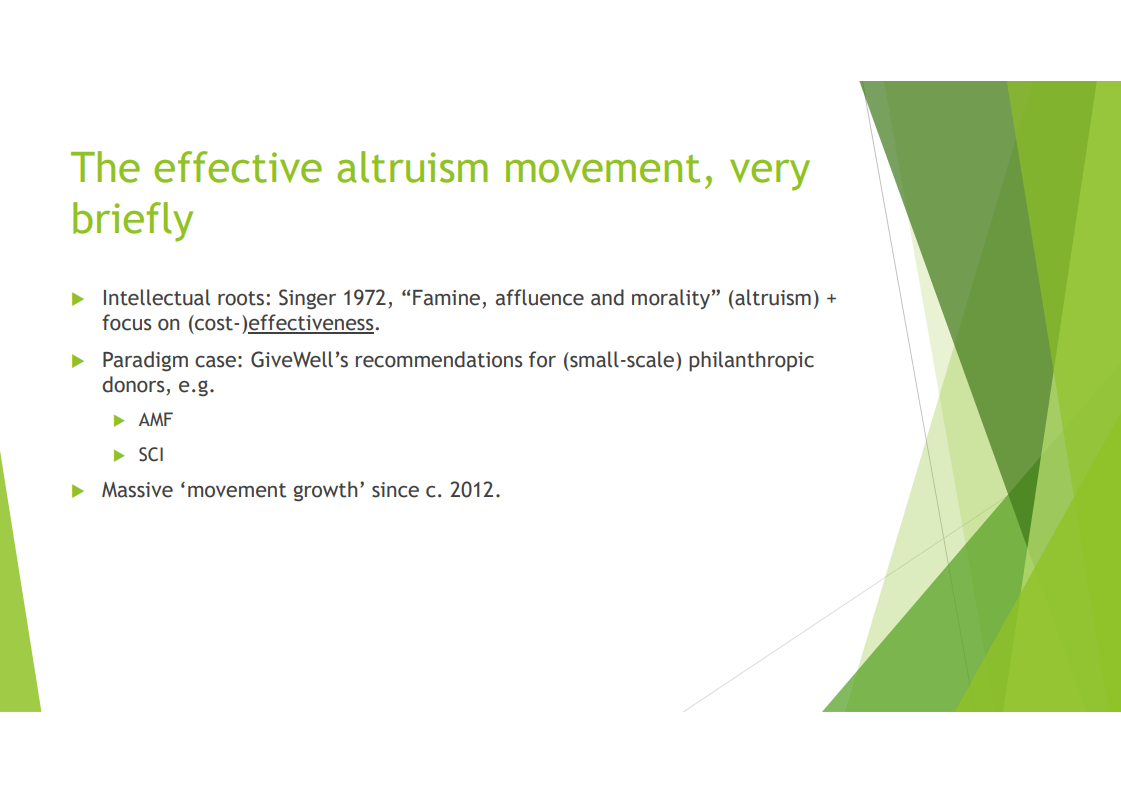
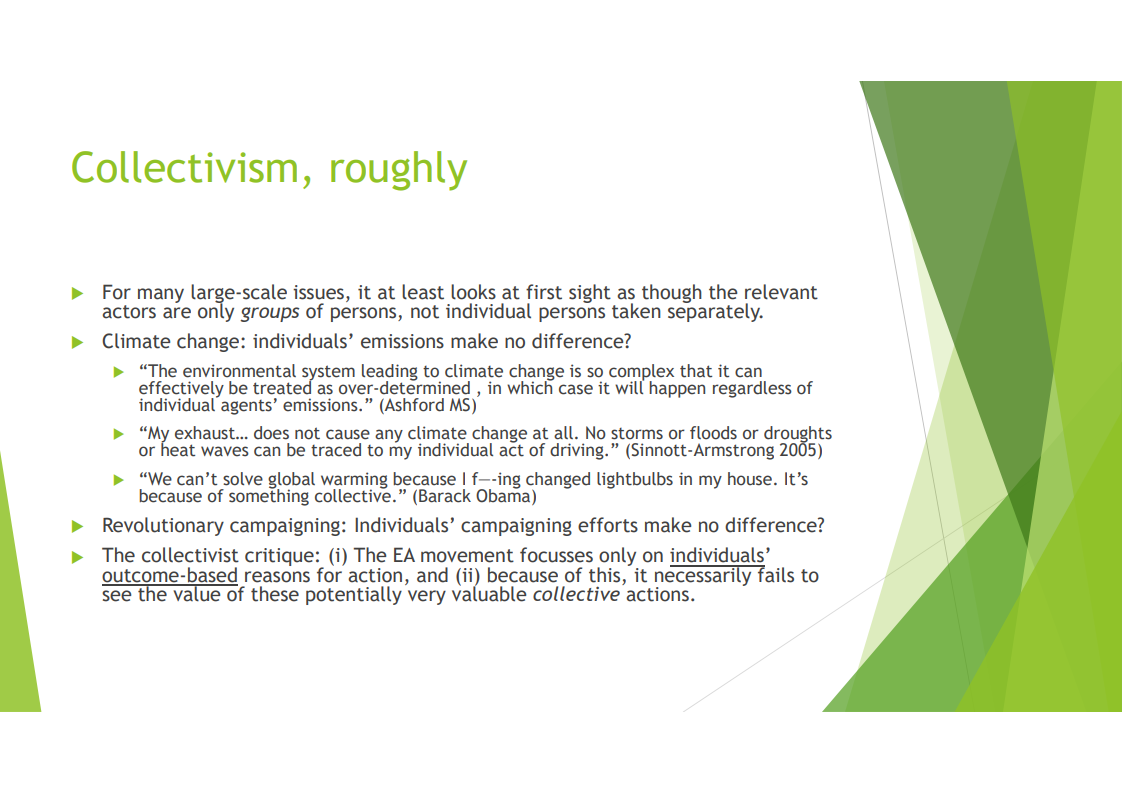
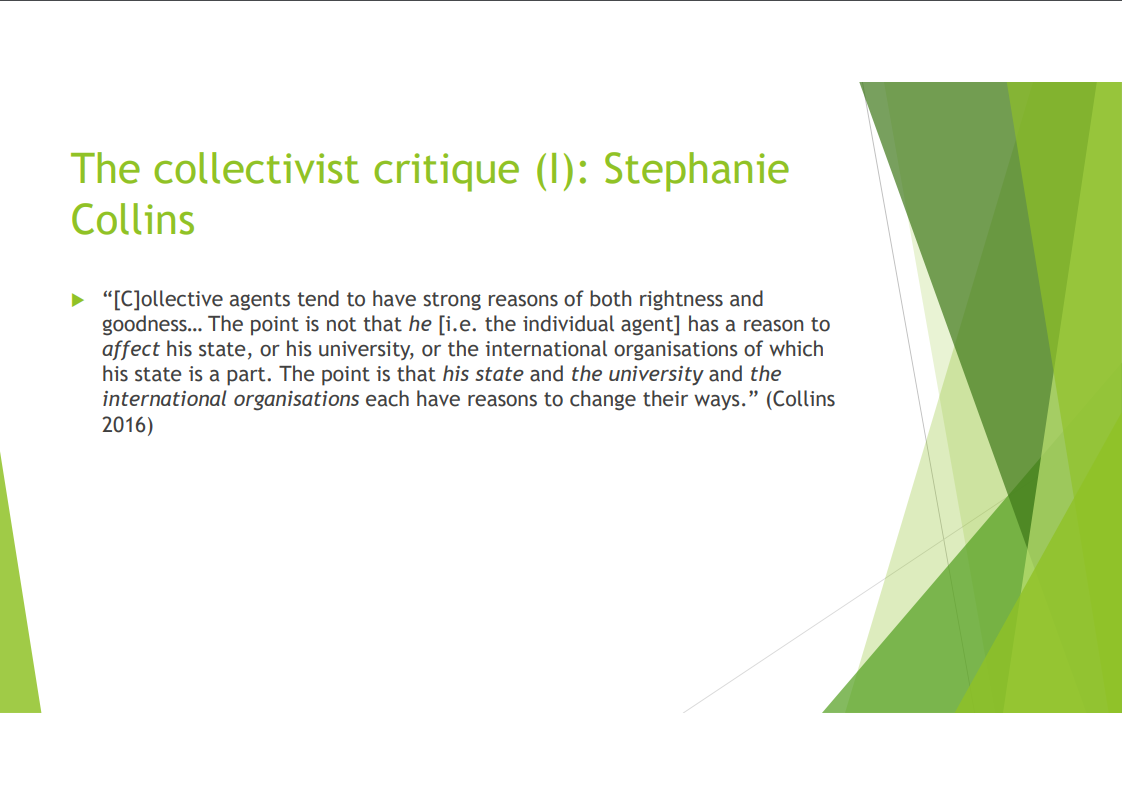
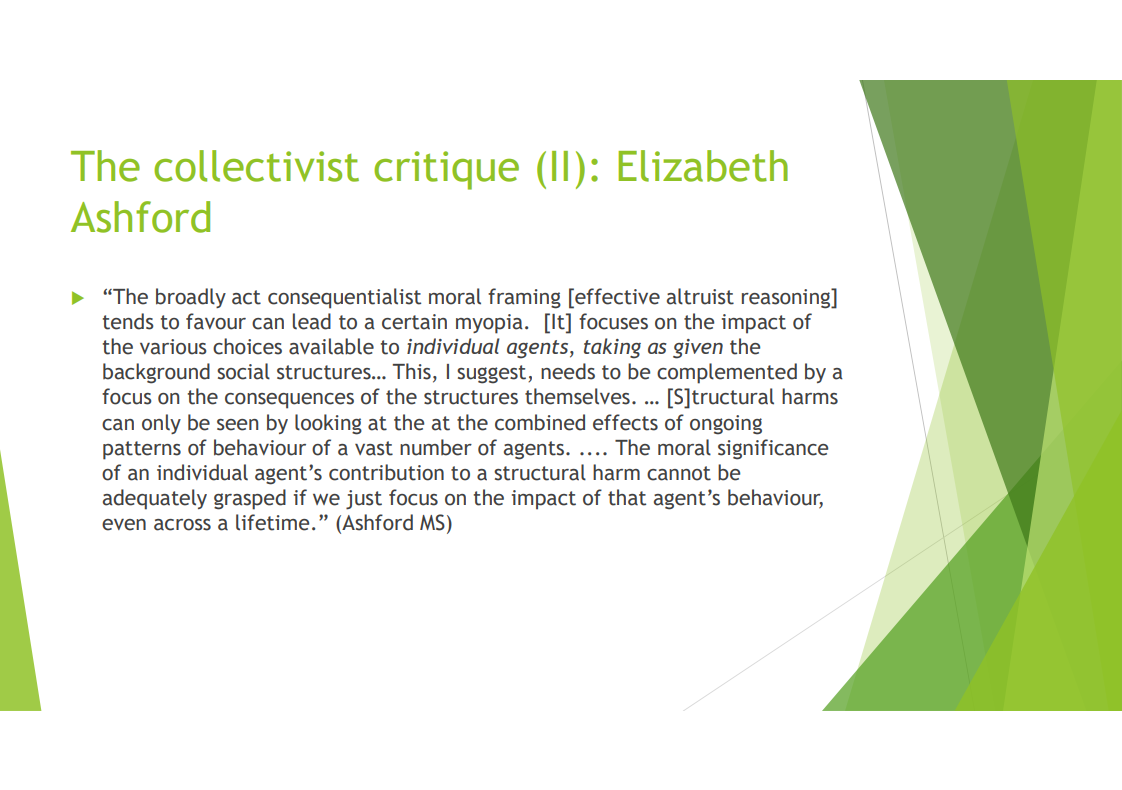
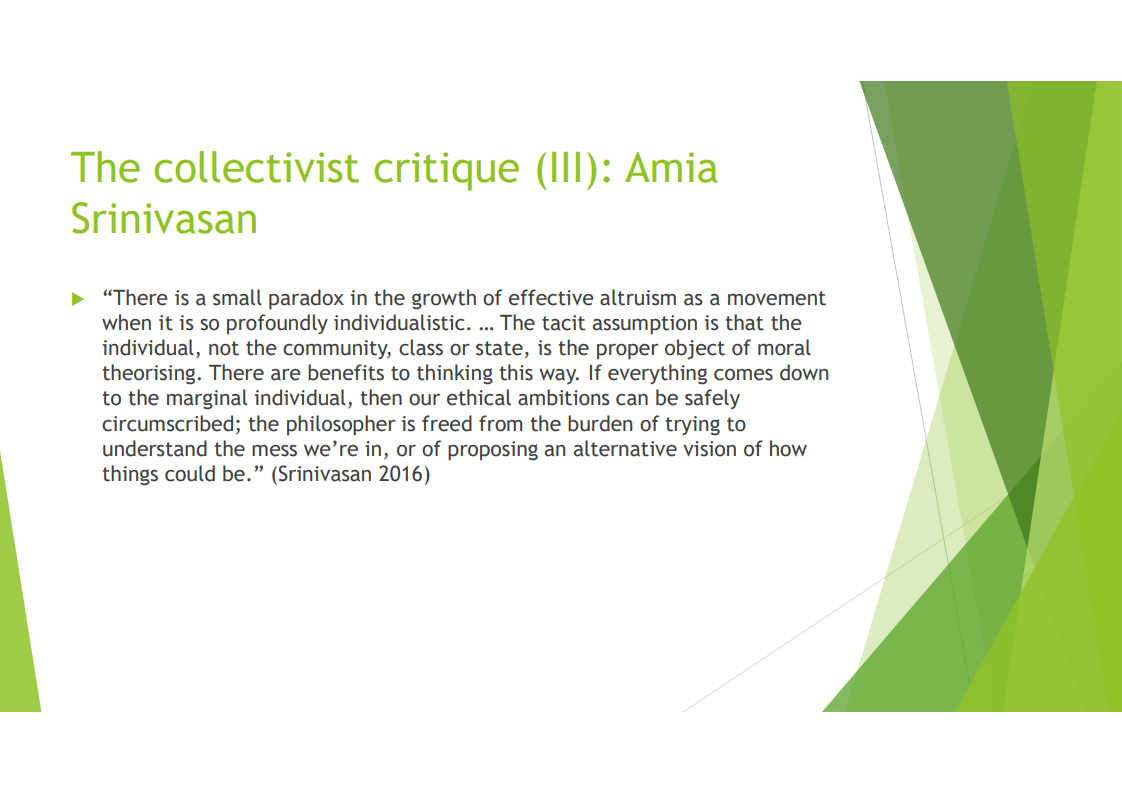
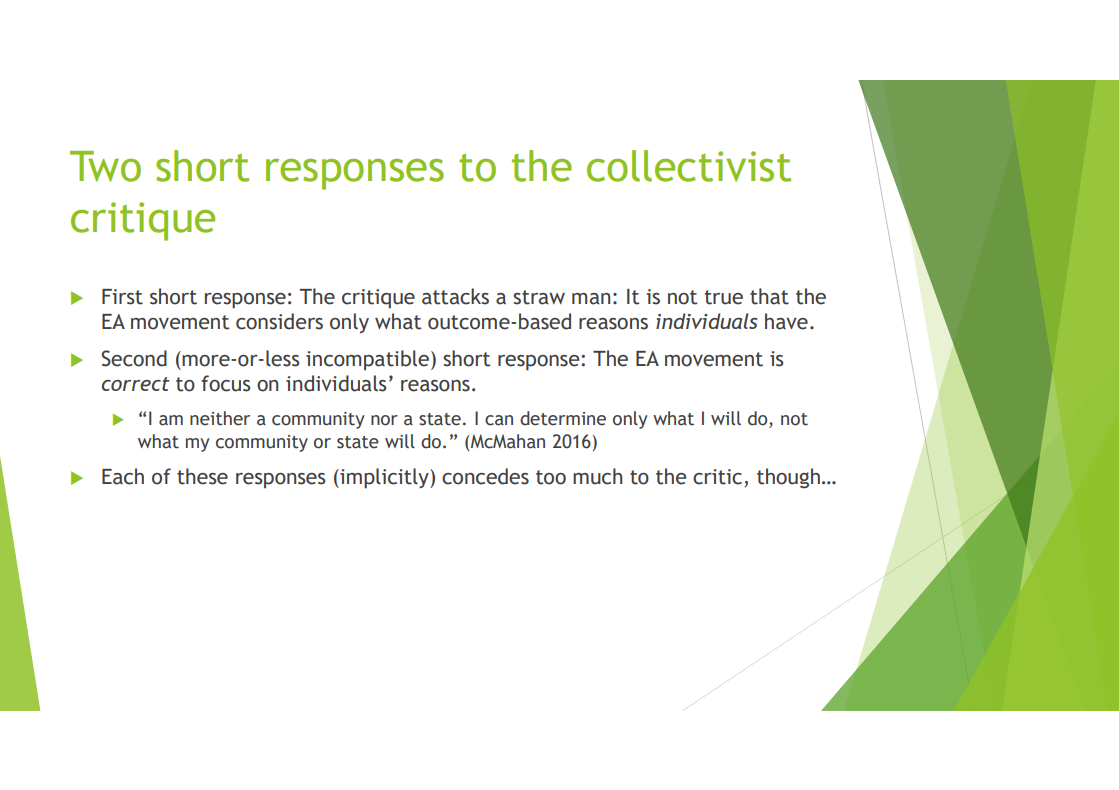
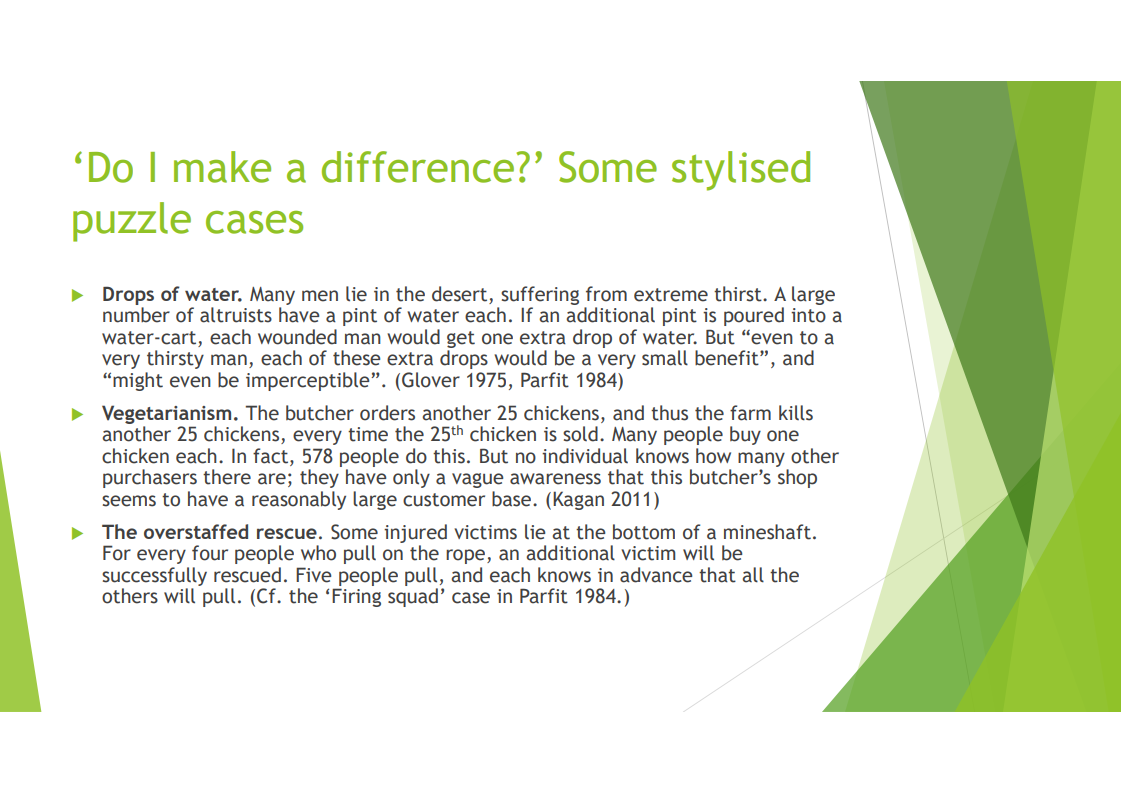
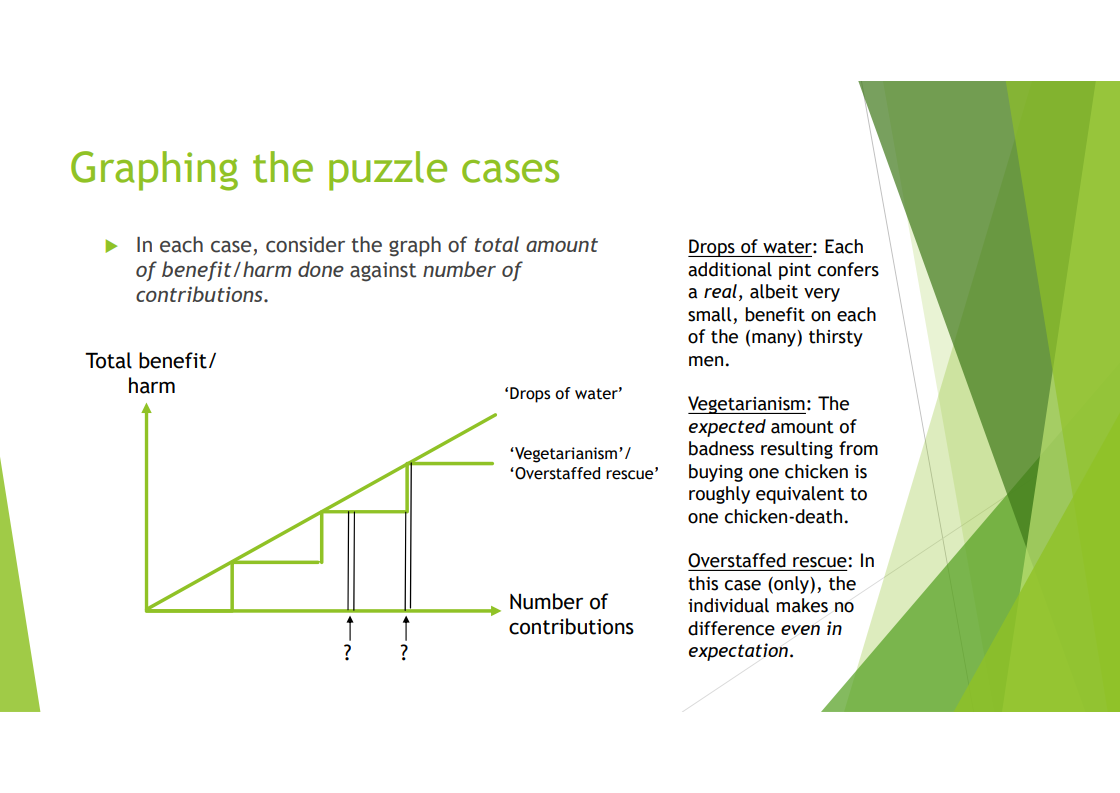
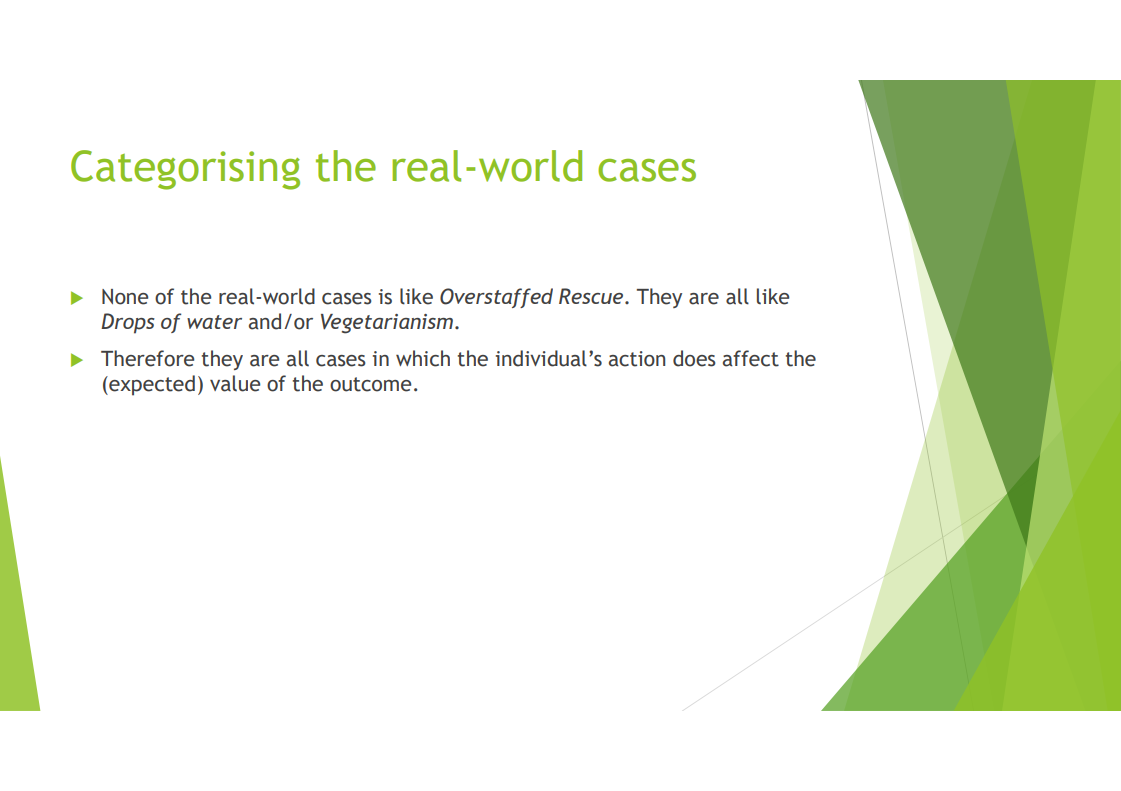
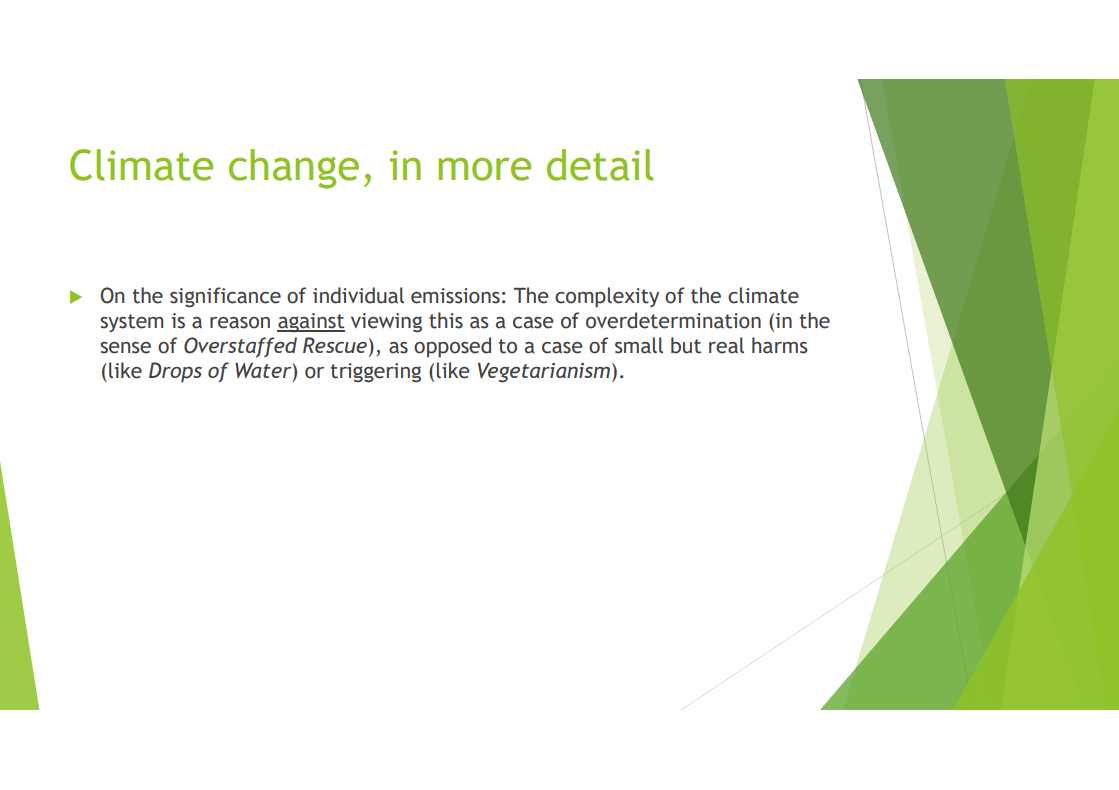
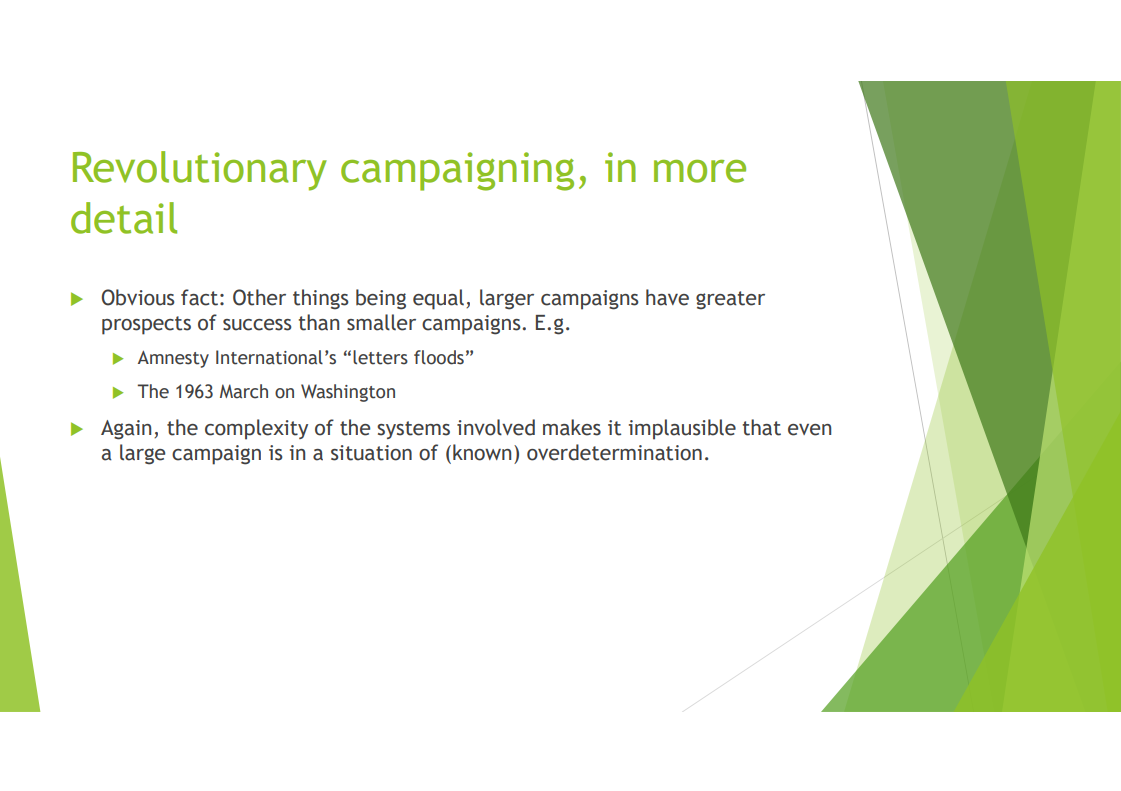
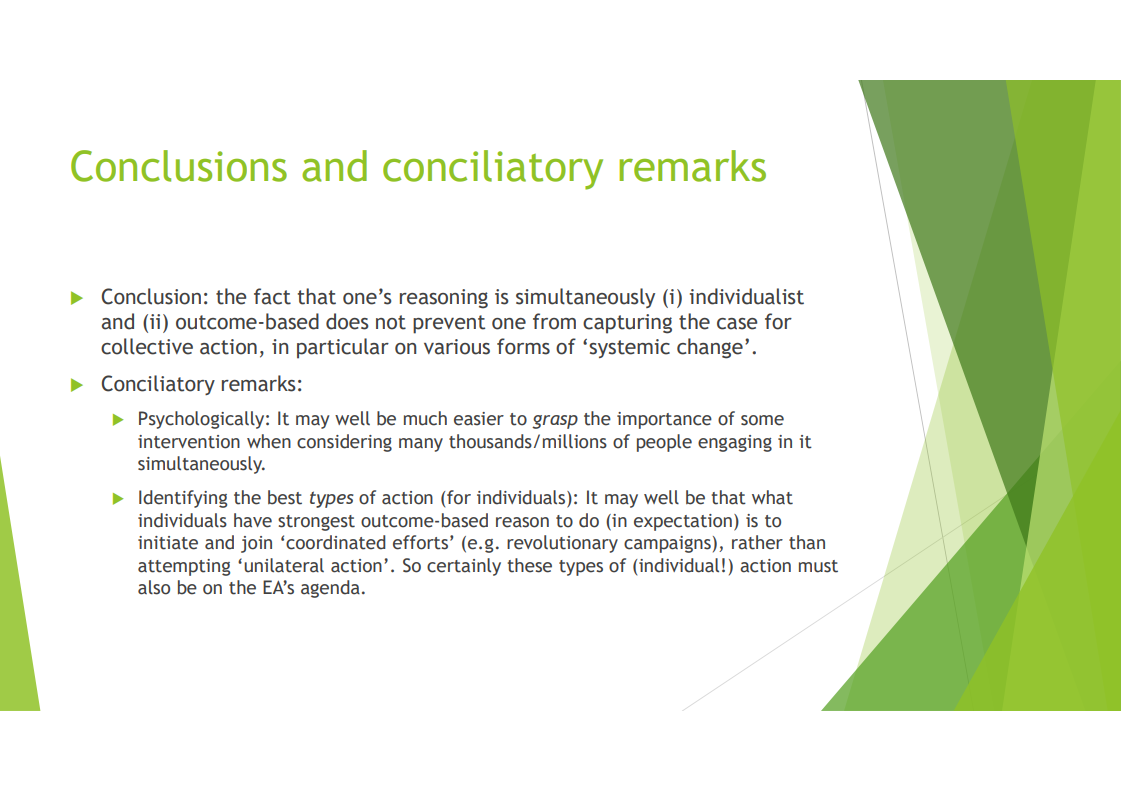
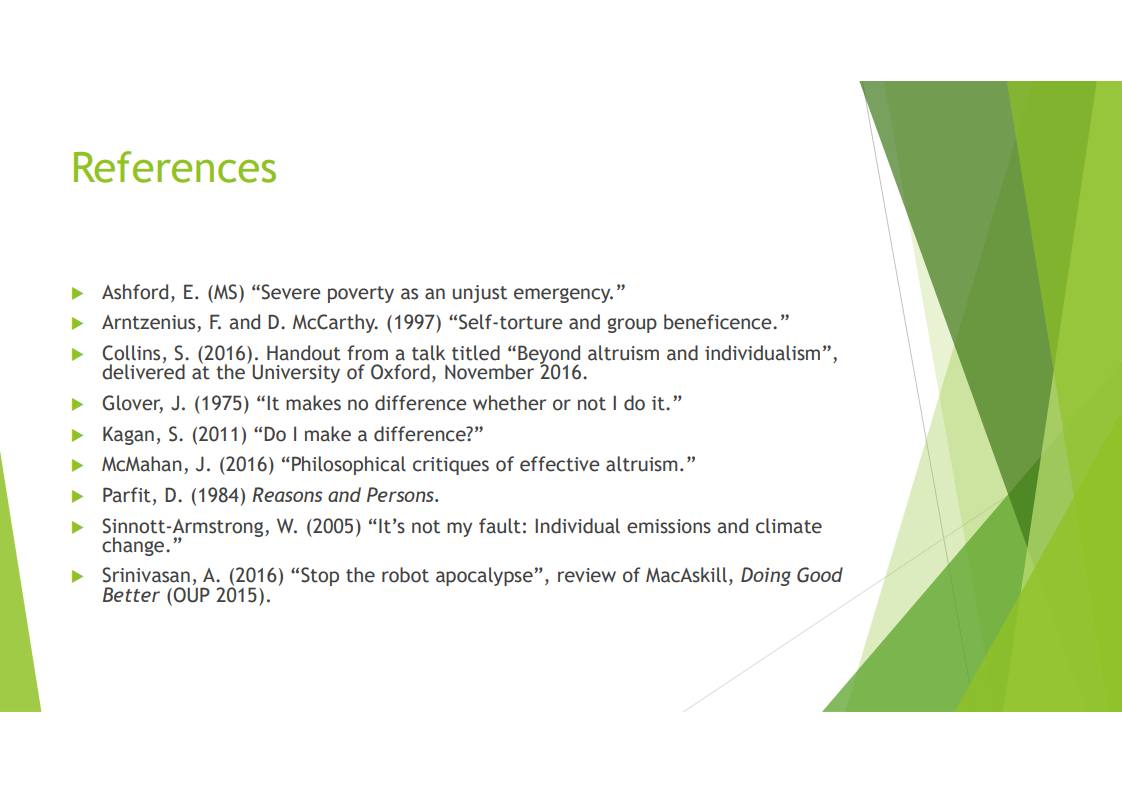

Thanks for the post, Aaron. It's a good lecture and a very interesting subject.
I wonder if there’s a more general problem of “tipping points” here. And though I think there’s no real necessary conflict between individual & collective action for EAs, there’s a relevant issue when it comes to analyzing how neglected a cause area is – i.e., deciding if an additional contribution increases the probability of effective change.
I should remark that I’m not sure that the “expected badness amount of buying one chicken” is roughly equivalent to one-chicken death marginally, because markets take a while to adjust to someone’s shift in preferences. So if you forgo eating chicken only for today, the market still expects you might do it tomorrow; but if you become a vegetarian, the industry will eventually realize a drop in demand. Thus there’s a number n > 1 of chickens, a tipping point, below which your consumption makes no difference for the amount of chicken killed. Similarly, a realistic instance of Drops of Water could be framed as a matter of achieving the (unknown) threshold below which people would dehydrate and die – it’d not make any difference to contribute to the pool below that threshold.
She gave a closely related talk at EAG London 2017.
I agree that there are relatively few people in EA looking at anything I'd consider "the impact of collective action," but I also think this makes sense given the reality of EA's size and influence. We are a few thousand people (perhaps 10,000) spread across multiple continents. Working on advice for individuals (or even your nearest government) seems much more likely to bear fruit than figuring out which actions are most promising for large groups of people to take together.
I would be interested to see more work on questions like "what are the best predictors of a viral Change.org petition?", where there's a chance of leveraging large groups who aren't connected to EA at all.
The work that a few EA-aligned people are doing to attempt to influence a parliamentary vote (using a relatively novel approach) may be of some interest to you, as well as this successful ballot initiative which involved some degree of public advocacy.
I think so. As I understand the critique (and maybe I'm bringing my own baggage to it) EA brings with it a certain perspective that centers individual action and may have a tendency to overlook collective action and create certain blindspots around collective/political action.
That EA principles are not philosophically inconsistent with collective action is not, I believe, actually a very effective counter-argument to that point at all.
Thank you for cross-posting. Very valuable to have at hand, especially to share with people new to EA who may gravitate toward the strawman argument.